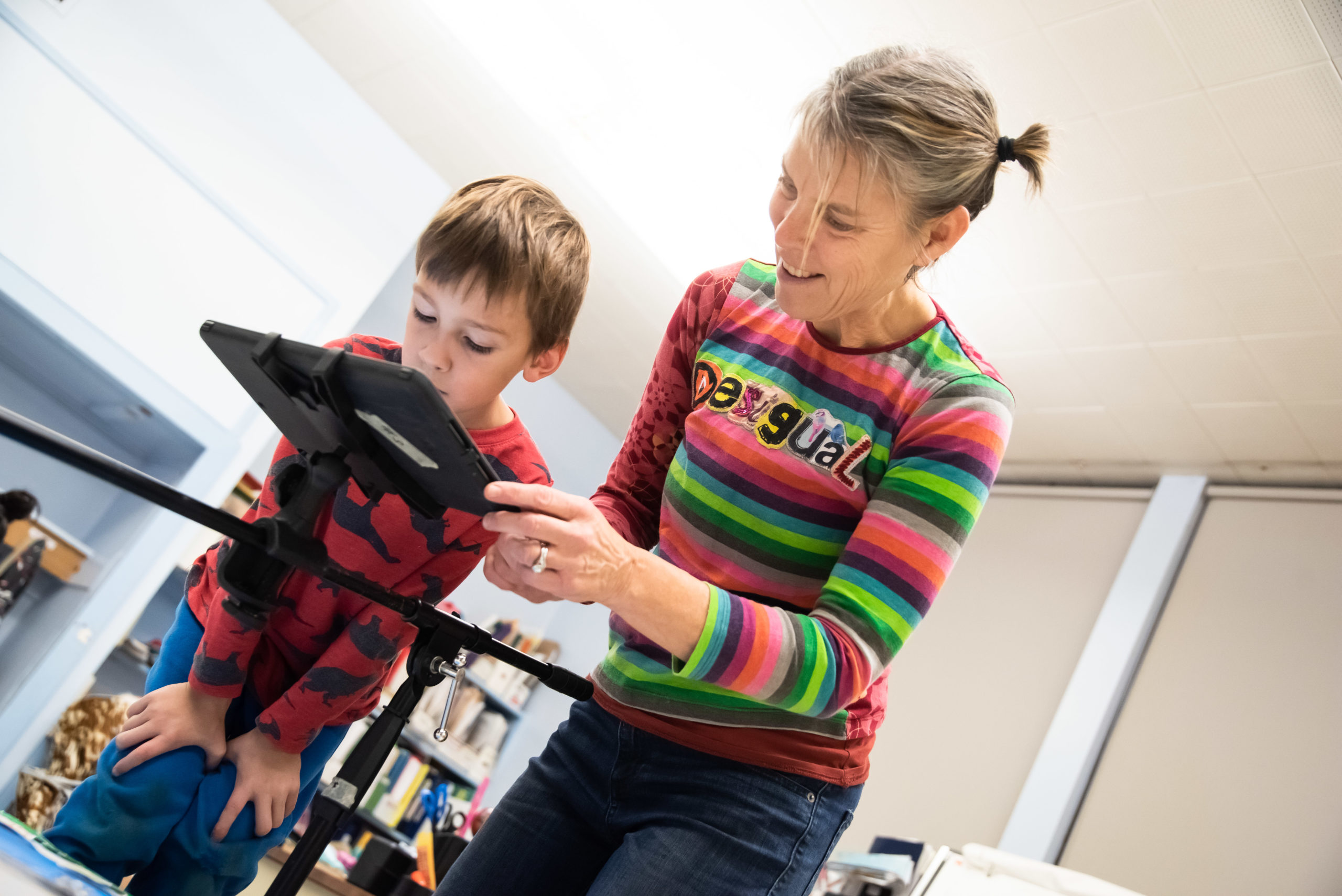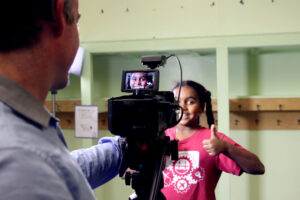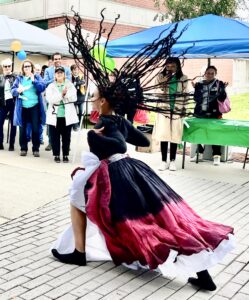Interview: Animator Tina Le Moine wants to spark passion and help people tell stories
By Jessica Ruano | January 4, 2022

This interview was originally published on Apt613.ca
Tina Le Moine was born in Berlin, Germany. She left her hometown and her teaching career during the turbulent “fall of the wall” to study art and media in Holland. Tina has lived and worked in animation in Vancouver and Montreal, and she now resides in Ottawa spending her time teaching animation, creating, and enjoying life.

Tina Le Moine. Photo provided by MASC.
MASC: Let’s assume we’re all new at this stuff! What’s the difference between animation, cartooning, and stop-motion? Why is this your preferred medium for artistic expression?
Tina Le Moine: Animation is the term used for all the above. To animate means to give life, so basically you breathe life into an object that would not move on its own. Cartooning is one way to animate, done on cells, a transparent film that makes animating easier because you only have to work on one motion, while the background stays constant. Most cartoons these days are done on the computer. Stop-motion is done by taking a picture of an object, moving that object a minuscule bit and then taking another picture.
Animation is a great way to tell stories using a freedom of expression that you don’t have with live-action film. In animation anything’s possible because your subjects will not complain about the way they are handled. The tricky part is coming up with a good story that will make the animation worth watching. The best part is when your object, for example a chair, all of a sudden develops a personality and acts as if they have a soul.

Tina teaching animation to seniors. Photo provided by MASC.
Since your workshops are focused on digital media, has the transition to teaching virtually been relatively smooth, or has it been a big shift for you as well?
The most difficult part of this transition is the lack of interaction with people. I usually know where my MASC workshops are going from my first impression of the participants. So that is more difficult to do online… it’s less animated, I guess. I have developed a slideshow for new participants to illustrate visually what you can expect from the workshop. One good thing about teaching online is that you can reach more people, for example in schools that are too far to visit.
As a MASC artist, what do you gain through offering your workshops in schools and in the community?
Creativity and energy. I love working with MASC and the energy I get from those workshops. There is so much energy in a room full of people to whom you give a camera, lots of materials and a storyboard. For me, that is very inspiring.
In one of my MASC workshops I had a participant who came for the third year in a row. During the introduction he tried to come up with things to make everyone laugh. The laughter came, and instead of dismissing his ideas I used them to develop a song which then became the base for the movie we created. The movie was fun, imaginative and inspired by one comment.

Animation workshop. Photo provided by MASC.
You offer workshops to students of all ages as well as seniors. How do your teaching experiences differ between the various age groups and what do you learn from them?
Surprisingly enough, it doesn’t differ much. All age groups can be inspired by ideas and materials to create and let loose. Once that part is done, there is no stopping them.
Seniors giggle and laugh at their creations the same way kids do. One senior told me she liked that she can play again. That’s exactly what my MASC workshops are about: Playing, creating, and having fun. Making this craziness into a movie is my part of the process. Quick edits and the ability to develop stories from an idea is key. Young and old, there is no difference.
I continue to learn from my participants, their backgrounds, their life stories, where they came from; it is all very interesting and eye-opening. Sometimes a workshop can be challenging, and that’s when I learn the most. How do I get them to create? How can I inspire them? What do I need to change? I have lots of patience and can always find a solution to those challenges.

Up close and personal at a workshop. Photo provided by MASC.
Why do you think it’s important for our local community to have access to professional artists?
We MASC artists have a lot of knowledge and passion in our métier and are happy to pass this on. If you only learn from books or online resources, you will miss that chance of talking to an artist, asking them questions. Creativity can help with all aspects of life. The student that comes to my workshops doesn’t necessarily have to make lots of movies afterwards. Maybe they can now express an idea through animation that they were not sure of how to express otherwise.
If I can spark the passion to create in only one student every time I give a workshop, then that is one student that will go through life differently now. The power to create can make such a difference in people’s view of the world.
Latest News
View All Articles



